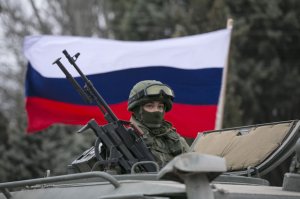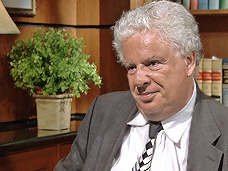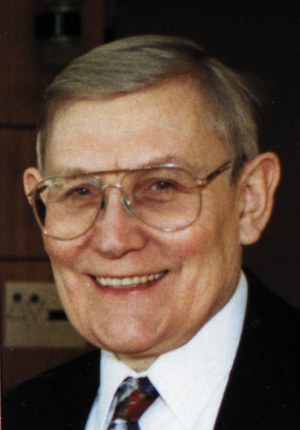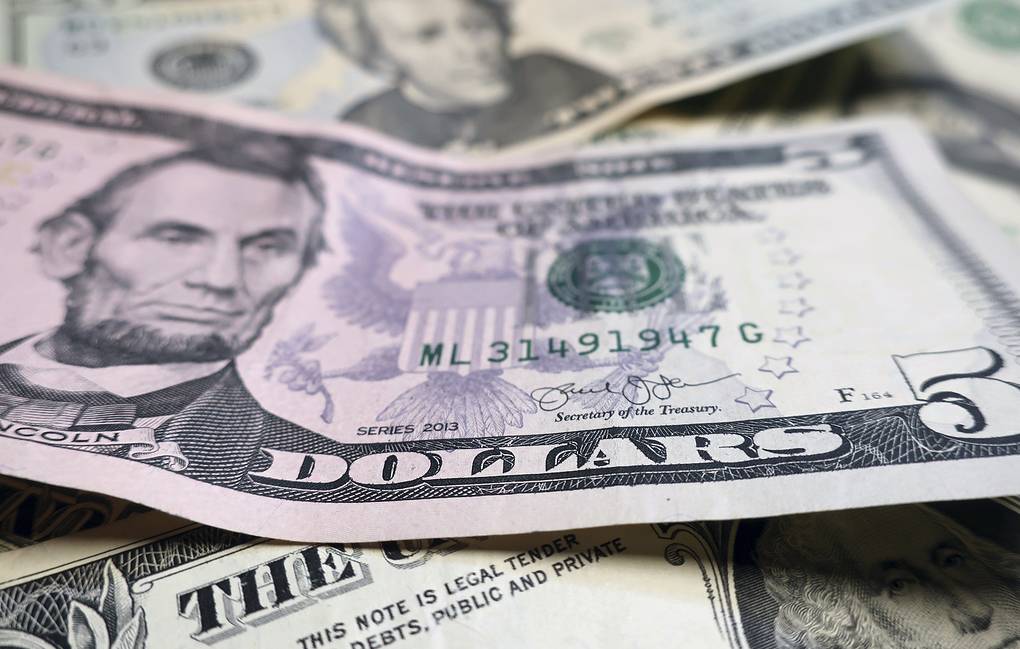
 For those of us with an historical turn of mind, the rapidly unfolding civil war and international crisis surrounding Ukraine brings to mind both some unnerving analogous developments in the past as well as some remedies which might be applied quickly to prevent further hemorrhaging of the global governance, not to mention some freakish spinning of events out of control.
For those of us with an historical turn of mind, the rapidly unfolding civil war and international crisis surrounding Ukraine brings to mind both some unnerving analogous developments in the past as well as some remedies which might be applied quickly to prevent further hemorrhaging of the global governance, not to mention some freakish spinning of events out of control. One could go back in time to
the mobilizations and ‘sleepwalking’ of the great powers that preceded the
greatest 20th century disaster, World War I, which is very much on
our minds in this hundredth anniversary year. However, I suggest that another
nightmare scenario from more recent history is more apt: the Cuban Missile
Crisis, which brought the world as close to the brink of nuclear Armageddon as
we have ever been.
One could go back in time to
the mobilizations and ‘sleepwalking’ of the great powers that preceded the
greatest 20th century disaster, World War I, which is very much on
our minds in this hundredth anniversary year. However, I suggest that another
nightmare scenario from more recent history is more apt: the Cuban Missile
Crisis, which brought the world as close to the brink of nuclear Armageddon as
we have ever been.
The trigger for the 1962 showdown was the Soviets moving their nuclear assault potential to within 90 miles of Florida. The trigger today is the US sponsored coup d’etat which has brought the radical West Ukrainian Maidan Government to power in Kiev, setting the stage for NATO membership and perhaps even re-deployment of nuclear weapons right up to the Russian border, a true nightmare scenario for the Kremlin.
It is especially troubling in any comparison between October 1962 and February/March 2014 to consider the quality of the close policy advisers surrounding the President of the United States then and now. Like them or loathe them, Kennedy’s ‘best and brightest’ were complemented by professionals with decades of government service and realistic perspectives. President Obama has chosen for foreign policy advisers and implementers dyed-in-the-wool ideologists and rights campaigners like Victoria Nuland, Samantha Power and Mike McFaul, so that it is unclear where he will now find the gravitas missing in his entourage.
This brings us to a solution that arose at the last nadir in US-Russian relations, the period bracketing the Russian-Georgian war of 2008. A group of wise men emerged drawn from seasoned businessmen with relevant experience like Maurice Greenberg, former US Ambassadors to Moscow Thomas Pickering, Jack Matlock and James Collins, and several U.S. Senators including our present Secretary of Defense. They jointly and publicly appealed for the return of a sense of proportion and decency in the U.S. handling of Russia. The end result of their labors under the aegis of the Belfer Center (Harvard) and the Nixon Center was a policy paper, "The Right Direction for U.S. Policy toward Russia.” Meanwhile, a parallel center of gravitas formed around Henry Kissinger and Robert Baker also publicly and privately counselled the US government to cool things down. These efforts all contributed to what became the ‘reset’ policy.
Regrettably the advice of the Wise Men in 2008 was too timid, too limited by conventional American imagination on possible cooperation with Russia which did not go beyond arms control and nuclear disarmament. Strategic rapprochement and formal security guarantees for Russia were not seriously explored.
Questions:
Can a persuasive Wise Men commission to defuse the crisis be formed swiftly now?
In addition to the 2008 personalities, who else belongs there to ensure it is forward looking and can be long lasting where the last attempt has not been?
The topic for the Discussion Panel is provided by Gilbert Doctorow,
Gilbert Doctorow is a Research Fellow of the American University in Moscow.
Expert Panel Contributions
 The Need for a Real Reset
The Need for a Real Reset
By Martin Sieff
Martin Sieff is a columnist for the Post-Examiner newspapers and a senior fellow of the American University in Moscow
Back in 2009, Secretary of State Hillary Clinton famously gave Russian Foreign Minister Sergei Lavrov a cheap red plastic button as a gift to symbolize the "re-set” and revival of U.S.-Russian relations. It was made in China and it didn’t work.
This childish gesture symbolized the long, disastrous deterioration in U.S.-Russian relations in the 21st century and the failure on the part of U.S, policymakers to grasp their great and continuing importance. Today we face the greatest risk of global thermonuclear war in 52 years since the Cuban Missile Crisis. The policymakers in Washington and the pundits who supply them with what masquerades as thought have no idea how dangerous conditions are, or what needs to be done to avert the threat.
The real change needs to be made in the minds of U.S. leaders and policymakers. Their ignorance of Russia is virtually total. Their arrogance towards it is unbounded. And their ignorance of all history outside the clichés of CNN in complete.
The U.S. foreign policy establishment still has the raw bones of a circle of Wise Men, such as those who helped defuse the 2008 crisis with Russia over its intervention in Georgia, as Gilbert Doctorow rightly points out. It is a vast improvement to have John Kerry as secretary of state rather than Ms. Clinton and to have Chuck Hagel as secretary of defense with his immediate predecessor Robert Gates standing in the wings rather than Donald Rumsfeld. Former U.S. ambassadors to Moscow Thomas Pickering and William Burns ought to be recognized as worth far more than their weight in gold.
However, so far President Obama and his hapless national security adviser Susan Rice have shown no sign whatsoever of reaching out to these "Wise Men.” Outgoing U.S. ambassador to Moscow Michael McFaul has been a catastrophe. His resignation after only two years and during the worst U.S.-Russia stand-off in 50 years is testament to his clownish, infantile behavior. Serious diplomats do not make daily fools of themselves on Twitter.
This is not simply a failure of Democrats. Ignorance and contempt towards Russia is even stronger among Republicans. In the closing months of 2012, senior figures on Mitt Romney’s foreign policy team were already issuing public comments about how they would put Russia in its place when they won.
President Obama last year showed an admirable ability to coolly recognize his own mistake and back away from getting U.S. military forces embroiled in the Syrian civil war. Back then, neocon blowhards, led by their usual cheerleader Sen John McCain, urged intervention. McCain also stirred up the crisis in Ukraine with his incendiary appeal to street crowds in Kiev. Obama once again needs to resist the policies of catastrophe urged by his greatest personal enemies.
However, a far deeper reset is necessary. U.S. policymakers and their "hollow men” pundits need to recognize that Russian policymakers believe they have been driven to breaking point and that they have drawn their own very serious line in the sand. Washington needs to go back to the respect – and fear – it had for Soviet leaders and strategic nuclear power back in the 1970s and 1980s and learn anew the need to treat Moscow with respect, with dignity and as an equal partner.
This is the real reset that the second Obama administration must make to defuse the global dangers of the Ukraine crisis. Buying a second, cheap plastic red "reset” button at Staples will not cut it.
 By Dmitry Mikheyev, former senior fellow at the Hudson Institute,
lectures "Leadership in the 21st century” at various business-schools in
Moscow.
By Dmitry Mikheyev, former senior fellow at the Hudson Institute,
lectures "Leadership in the 21st century” at various business-schools in
Moscow.
Analysts who suggest that two parties [the West and Russia] should become joint economic donors and guarantorsof Ukraine’s stability and territorial integrity overlook the fact that the mentioned parties have totally different views of causes of Ukrainian crisis. First of all, there are FIVE (not two) parties whose interests are at variance. The EU and the US should not be lumped together because their assumptions and views underlying their policies differ substantially.
It is obvious that Russia is more than anybody else interested in Ukraine’s stability, integrity and prosperity. Russia is terrified by the prospect of a full-scale civil war in which Slavic brothers will kill each other, economy and trade will be disrupted, etc. To appreciate Russians' sentiments and fears enough to see the classic movie Tikhiy Don.
The EU needs Ukrainian markets, perhaps her raw materials and arguably her labor and is not therefore interested in major unrest and chaos there either. It is afraid of hungry refugees and unrest spilling over to Hungary, Romania, Poland… Neither it is eager to have another client-state ten times the size of Greece. Hence Brussels’ offer of modest assistance and trade association, but not membership.
While due to their morbid history Europeans are apprehensive of discord and chaos, the US’s view of Ukrainian chaos is different because it is rooted in an entirely different history and social philosophy. Americans do remember their Civil War but assume that a mild strife and chaos constitute a normal state of social life. Darwinian strife, many of them think, stimulates inventiveness and progress and thus benefits the society at large. Remember Federalist and Jefferson’s fondness of regular rebellion? Management of chaos therefore means containing it within the low-key range so that it doesn't explode into an all-out catastrophe. Only a superior "benevolent power,” such as the US, can handle this task. That’s why America ‘altruistically’ maintains some 775 military bases around the world and keeps on building new ones.
So, from the American corner, Ukrainian instability and chaos looks as a normal and even healthy phenomenon befitting the US’s overall global strategy. Turmoil in Ukraine creates enormous problems for the "reactionary Russia” and serious problems for the "flabby EU.” It keeps both geo-political rivals nervous, squabbling, and scrambling to save Ukraine from the ultimate disaster. Meanwhile the "benevolent hegemon” stands by and waits for the opportunity to establish firm military presence in the heart of the Slavic world, as it did in all former Soviet bloc countries.
American political elite should stop treating Europeans as unruly teenagers and mind its own business. The settlement of Ukrainian conflict is exclusively European problem and pain. Two Ukrainian sides, the EU and Russia should get together and work out arrangements securing the country’s steady economic growth – favorable tariffs, investments, joint economic projects etc. This will quell the turmoil and benefit all Europeans. But first, Europeans should stop being complacent or actively playing American Divide et Impera game.
Finally, I am absolutely convinced that chaos managing strategy is fallacious, it is contrary to America’s interests and sooner or later it will ruin her as it did Roman Empire.
 By Henry H. Gaffney
By Henry H. Gaffney
REPLY TO GILBERT DOCTOROW BY HANK GAFFNEY
Gilbert Doctorow’s comparison of the current situation in Ukraine to the Cuban Missile crisis is inapt. The more apt comparison is to Saddam Hussein’s personal invasion of Kuwait in 1990. That is, it is an assault on the system of Westphalian sovereignty that the world has pretty well observed since then. He is also wrong that the U.S. sponsored a coup d’etat in Kiev. That demeans the millions of Ukrainians who turned out in Kiev to protest against the government’s corruption (i.e., its oligarchic rule). Echoing Putin’s conspiracy theories, he assumes that the millions came out because the CIA was running around with little bags of money for each of them. No – this has been a true democratic revolution. Yanukovych had completely lost contact with his people – as demonstrated by their tours (and not looting) of his lavish manor. Whether a new government can get its governing act and economy back in order is a whole other question – Yanukovych was certainly not doing that.
In November 1962, I joined the office in the Pentagon that had supported Paul Nitze in his role in the Executive Committee that provided advice to Kenney during the Cuban Missile Crisis. They dumped on me all the papers Nitze had gathered during the crisis and asked me to write a history. I did – a Top Secret report that disappeared into the Pentagon’s archives somewhere. The nuclear threat posed by the SS-4s and SS-5s in Cuba was frightening – I remember the RAND charts that showed coverage well into the U.S. Midwest. But the greatest mystery was, as now with Putin, what was Khrushchev up to? We know now (as Sergei Khrushchev said at GMU on October 27, 1962) that the missiles were there to deter the U.S. from attacking Cuba (which the U.S. talked about incessantly back then). That is, as Sergei K. said, "If a country declared itself as Communist, we were bound to defend it.” There was only one paper in the stack that said that Khrushchev would cave. It was by RAND’s Nathan Leites, author of "The Operational Code of the Politburo.”
Remember, the Soviets had a collective leadership. Putin, like Saddam, is the sole leader and decision-maker in Russia now. In retrospect, Khrushchev then was a lot saner and consultative with his Politburo than we conjecture about Putin now. Anyway, those Soviet missiles in Cuba were a gross threat to the very existence of the United States. What’s happening in Ukraine now is not a threat to the very existence of the United States – only to the people who live in Ukraine.
As for a group of Wise Men getting together now to wrestle with the issue—which at the moment seems to have settled into whether Putin keeps Crimea or not—we are seeing a lot of balanced commentary emerging, much better than the McCains and Lindsey Grahams. I read through Putin’s press conference, and even though he had a bunch of weird observations not backed up by any facts, it came across to me that he can be negotiated with.
As a final observation, it strikes me that this Ukrainian uprising, assuming it is not taken over by their radicals, is one of the first blows against the oligarchic rule that was stifling Ukraine and is now stifling both Russia and the United States (see "The One Percent” or 0.1 percent) and other countries. I hope we can get back to fair competition leading to real and constant rotations of leaderships. It is the only way to break the corruption of the oligarchs.
 By Michael Averko
By Michael Averko
Michael Averko is a New York based independent foreign policy analyst and media critic.
The introduction to this panel by Gilbert Doctorow, underscores a level of discontent with the prevailing status quo. I'm not surprised at the aforementioned introduction, upon reading his recent commentary at the US-Russia.org website.
Especially in these times, it doesn't seem so easy to be a truly effective wise man working within the establishment. This point seems to have some relationship with the presidential appointments mentioned by Doctorow in his introduction. Not to be overlooked are National Security Adviser Susan Rice and the ironic remarks Secretary of State John Kerry recently made about Russia behaving like a 19th century power, invading a country under a sketchy pretext (according to him as well as some others). Kerry's diplomatic chutzpah is stated as Russian President Vladimir Putin gets depicted as being detached from reality.
On the subject of chutzpah, can anyone imagine Arizona Senator John McCain in a lengthy point-counterpoint exchange, with those appearing on panels like this one? Instead, McCain is prone to appearing in bully pulpit situations, where the dissent against him is extremely limited. On this score, McCain is by no means alone, among American politicalelites, negatively commenting about Russia.
For the purpose of offsetting the present situation, it's imperative to try reaching out to the American public, given the distant manner of the US body politic and much of the establishment wonkdom. This is the kind of "revolutionary" (for lack of a better word) manner that neocons and neolibs selectively advocate abroad.
The attempt to reach to the upper echelon of American government foreign policy decision-making with wise menleads to several questions. What should be the makeup of these "wise men"? Reasonable and seasoned academics, who've served in government? Reasonable and practical academics, with no government experience? A combination of the two? Or, a situation that's more encompassing, without sacrificing quality input (my preference)?
With media and public relations in mind, an intelligent thinking outside the box serves to better influence change. On the subject of Russia, when it comes to those finding their way on English language mass media TV, NYU Professor Stephen Cohen, Center for the National Interest President Dimitri Simes and former American diplomat and academic Jack Matlock immediately come across as being among the most reasoned. Of the three, S. Cohen (not to be confused with Ariel) get the most TV action, followed by Simes and Matlock. They're by no means the only quality players out there.
I would've much rather preferred to have seen S. Cohen in place of David Remnick, during NBC's coverage of the Sochi Winter Olympics. I don't always agree with S. Cohen, while respecting his intellect. This last thought relates to my belief that the base could and should to be broadened, to include others, with valid and underrepresented points of view.
Like Western mas media at large, I find Al Jazeera America (AJM) to be generally slanted against constructively critical perspectives, which don't slight and misrepresent mainstream Russian views. The commentariat typically preferred by the likes of The New Republic and The Daily Beast, fall well short of objectively representing that position. I appreciated seeing AJM having recently hosted Anthony Salvia and James Jatras of the American Institute in Ukraine, in addition to Adranik Migranin of the Institute for Democracy and Cooperation and S. Cohen. Such appearances tend to be limited in contrast to the opposing slant.
S. Cohen did something that I sense many academics and others shun, when he appeared on Bill O'Reilly's Fox News show The O'Reilly Factor. S. Cohen masterfully interacted with the "No Spin Zone" not O'Reilly, who like it or not, has a good sized viewing audience. Those familiar with O'Reilly are aware that he gives a harder time (via interruptions) to people he disagrees with.
The American public at large aren't ardent Russia watchers. Two people I know who regularly watch O'Reilly's show acknowledged that S. Cohen made some cogent points. Hence, S. Cohen's presence on The O'Reilly Factor served a constructive purpose. Effective advocacy in mass media TV and radio can make a difference. Some (like O'Reilly perhaps) might be pretty much set in their ways. There're others more willing to change their opinions.
In this day and age, it shouldn't be considered so unconventional to seek contacting folks for the purpose of improving the coverage. This process can shoot a good number of blanks. There're also the exceptions, which are beneficial to one degree or another.
Groaning alone will not make a difference, as opposed to a civilly acceptable reaching out to others. Meantime, those with the desire and greater resources to seek an improvement, should appreciate and understand the need to offergreater opportunities, to those offering valid and underrepresented points of view.
As a parting shot to CNN's Wolf Blitzer and some others: the reason Mitt Romney's view of Russia now appaers to be "correct", is because of the Romneyesque thinking that has been taken by the EU and the Obama administration.



_jpg/250px-ElbeDay1945_(NARA_ww2-121).jpg)







